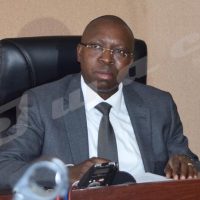At a press conference held this July 25, the chairman of PARCEM accuses some members of Burundi government of illegally accumulating wealth.

Faustin Ndikumana: “The government should conduct a sensitization campaigns about illicit revenues and implement the law on the declaration of property”
Faustin Ndikumana, chairman of PARCEM, a local NGO involved in changing people’s mindset, says government members ignore legal texts that oblige them to display their wealth at the beginning and at the end of their terms in office. “In Article 151 of the current constitution and the law of April 18, 2006, it is clear that the president of the republic, his two deputies, ministers, director generals, ministers’ assistants, permanent secretaries, province governors, and communal administrators… have to declare their wealth in order to curb illicit enrichment”.
He says this lack of transparency which reinforces a spirit of self-enrichment and lack of foreign support reduce the country to extreme poverty. “When there is no transparency in how financial resources are managed, a country suffers a lack of support. That is why the World Bank has invested few resources in Burundi because there is a lack of transparency in how the available resources are used”.
Mr Ndikumana, says fighting corruption is not easy because some members of the government who should combat it are involved in corruption practices. “There are high government officials who have wealth that cannot be justified if one considers what they earn,” he says, adding that this discourages the population to work and earn their living in a more just way.
He calls on the government to conduct a sensitization campaign about illicit revenues and implement the law on the declaration of property. “The Court of Auditors has to be empowered enough to investigate cases of illicit enrichment,” he says.
Elysée Ndaye, President of the Court of Auditors says the latter does not sue individual cases of illicit enrichment. “The Court of Auditors’ main objective is to control institutions’ accounts and manage public services”.



















 IWACU Open Data
IWACU Open Data

